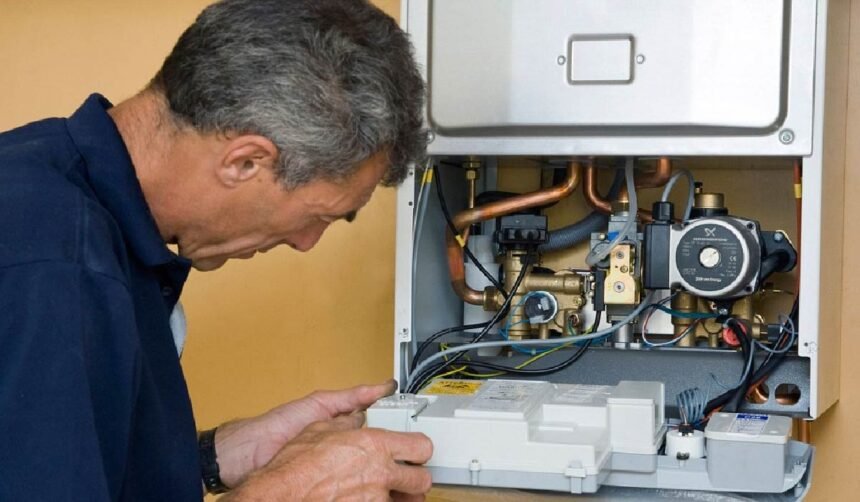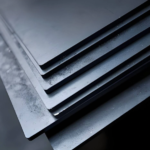When your boiler stops working properly, it can quickly turn into more than an inconvenience—it affects your comfort, safety, and energy bills. While modern boilers are designed to run efficiently for years, even the best systems develop problems over time due to wear, sediment buildup, or neglected maintenance. Understanding the most common boiler issues can help you spot trouble early and know when to call in a professional before minor faults become expensive breakdowns.
Here are five common boiler problems homeowners face—and how qualified technicians fix them safely and effectively.
1. No Heat or Hot Water
The Problem:
This is the most obvious and frustrating issue. If your boiler isn’t producing heat or hot water, the cause could be:
- A faulty thermostat or timer
- Broken airlocks or diaphragms
- Low water levels or pressure
- A failed motorized valve
- Ignition or pilot light issues
How Professionals Fix It:
A technician will start by checking whether the thermostat and controls are functioning correctly during the boiler repair process. They’ll inspect the boiler pressure, typically aiming for 1–1.5 bar on most residential systems. If the system pressure is low, they’ll repressurize it and look for leaks in the heating circuit. If you’re looking for a professional and dependable service, Temperature Control Systems, Inc. offers expert boiler repair with precise diagnostics and long-lasting solutions.
If the problem lies in a faulty diverter valve—a common cause of heat in radiators but no hot water—the part will be replaced or repaired. Professionals also ensure the boiler ignition and flame sensors are working properly before restarting the system.
2. Low Boiler Pressure
The Problem:
When boiler pressure drops too low, the heating system can’t circulate hot water efficiently. You might notice that radiators stay cool or the boiler display shows a low-pressure warning. Common causes include:
- Leaks in pipes or radiators
- Faulty pressure relief valves
- Recent bleeding of radiators without repressurizing
How Professionals Fix It:
A heating engineer will first inspect for leaks around radiators, valves, and pipe joints. If the leak is small, they’ll repair or seal it before repressurizing the system. If there’s a faulty pressure relief valve or expansion vessel, the component will be replaced.
After repair, the technician will repressurize the boiler to manufacturer specifications and test for pressure stability over several hours.
3. Strange Noises — Banging, Gurgling, or Whistling
The Problem:
Odd noises coming from your boiler—like banging, gurgling, or a “kettling” sound—often indicate limescale buildup, trapped air, or circulation issues. Over time, minerals in hard water form deposits on the heat exchanger, causing water to overheat and boil unevenly.
How Professionals Fix It:
Technicians first bleed the radiators to release trapped air and restore even water flow. If “kettling” persists, they’ll perform a power flush, which uses specialized cleaning chemicals to remove sludge and limescale from the system.
If the heat exchanger is badly scaled, professionals may replace it entirely or install a scale reducer to prevent future buildup. In hard-water areas, they may also recommend a water softener to extend the boiler’s lifespan.
4. Leaks and Drips
The Problem:
A boiler leak can occur anywhere—from internal seals to pipes and valves. Leaks reduce pressure, corrode components, and, if left unchecked, can cause electrical faults or system failure. Common causes include:
- Corroded pipes or joints
- Faulty pressure relief valves
- Worn-out seals or gaskets
- Loose connections
How Professionals Fix It:
A professional will locate the exact source of the leak using pressure testing or visual inspection. If seals are worn, they’ll be replaced. Corroded pipes or fittings are cut out and replaced with new copper or stainless-steel sections.
For internal leaks, the technician may need to open the boiler casing (something homeowners should never do themselves). The system is then tested under pressure to ensure no further leaks occur before it’s refilled and restarted.
5. Pilot Light or Ignition Failure
The Problem:
If your boiler’s pilot light won’t stay lit—or your modern system keeps failing to ignite—the problem could be due to:
- A faulty thermocouple (cutting off gas supply)
- Drafts blowing out the flame
- Clogged burners or ignition electrodes
- Gas supply issues
How Professionals Fix It:
Engineers begin by inspecting the thermocouple and ignition assembly, cleaning or replacing them if needed. If the issue is a dirty burner, they’ll disassemble and clean it with appropriate tools to restore proper combustion.
For modern electronic ignition systems, the spark electrode and control board are tested to confirm safe operation. Once fixed, technicians perform a combustion analysis to verify that the flame is stable, efficient, and producing minimal carbon monoxide.
Bonus: Preventing Boiler Problems Before They Start
While professional repair is essential for safety and reliability, prevention is just as important. Homeowners can minimize issues by:
- Scheduling annual servicing before winter
- Bleeding radiators to remove trapped air
- Monitoring boiler pressure monthly
- Installing a magnetic filter to catch debris in the system
- Using only qualified Gas Safe (or equivalent) engineers for any work
Routine maintenance doesn’t just prevent breakdowns—it keeps your system efficient, extending its lifespan and keeping energy bills under control.
Final Thoughts
Boiler issues rarely fix themselves, and what starts as a small leak or strange noise can turn into a full system failure if ignored. Understanding the common warning signs—and knowing how professionals address them—helps you act fast and avoid costly emergency repairs later.
Whether your system has lost pressure, stopped producing heat, or started making unsettling noises, calling a qualified heating specialist ensures your boiler is repaired safely, efficiently, and built to last.









